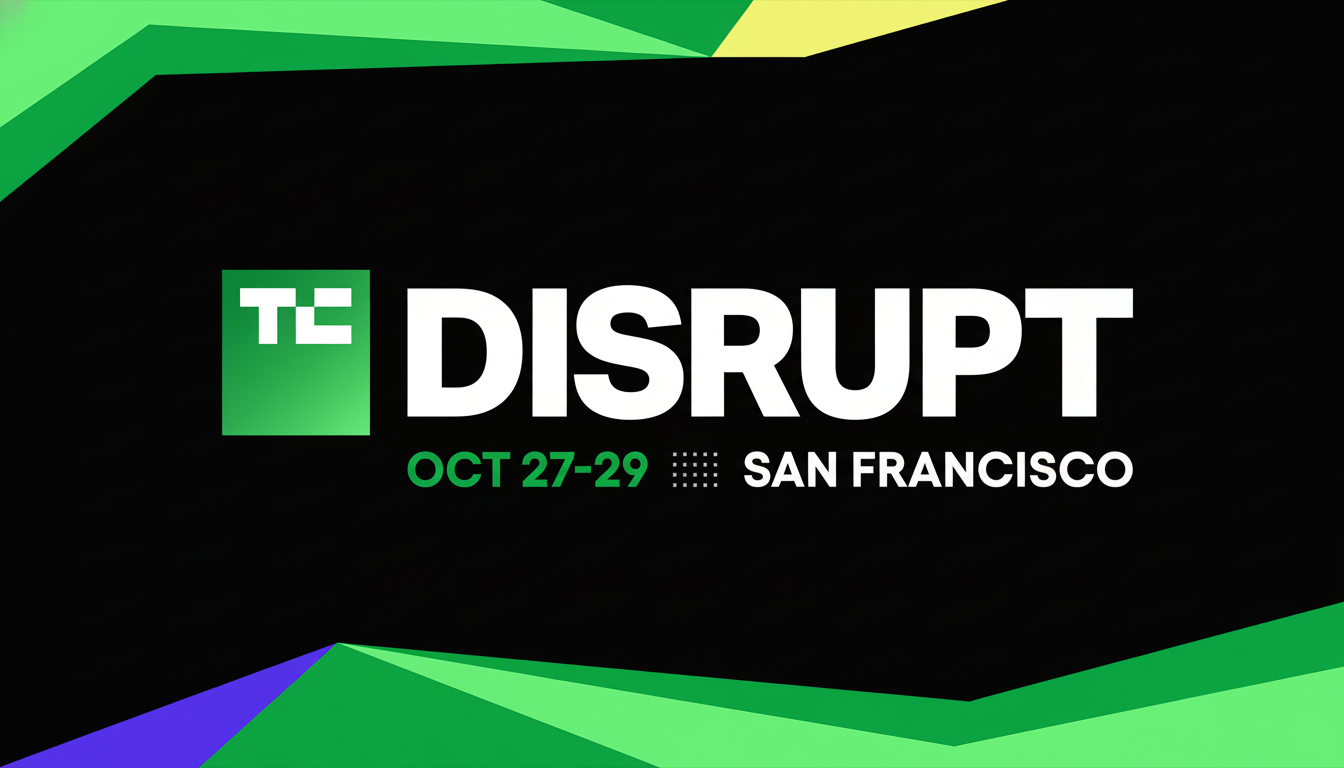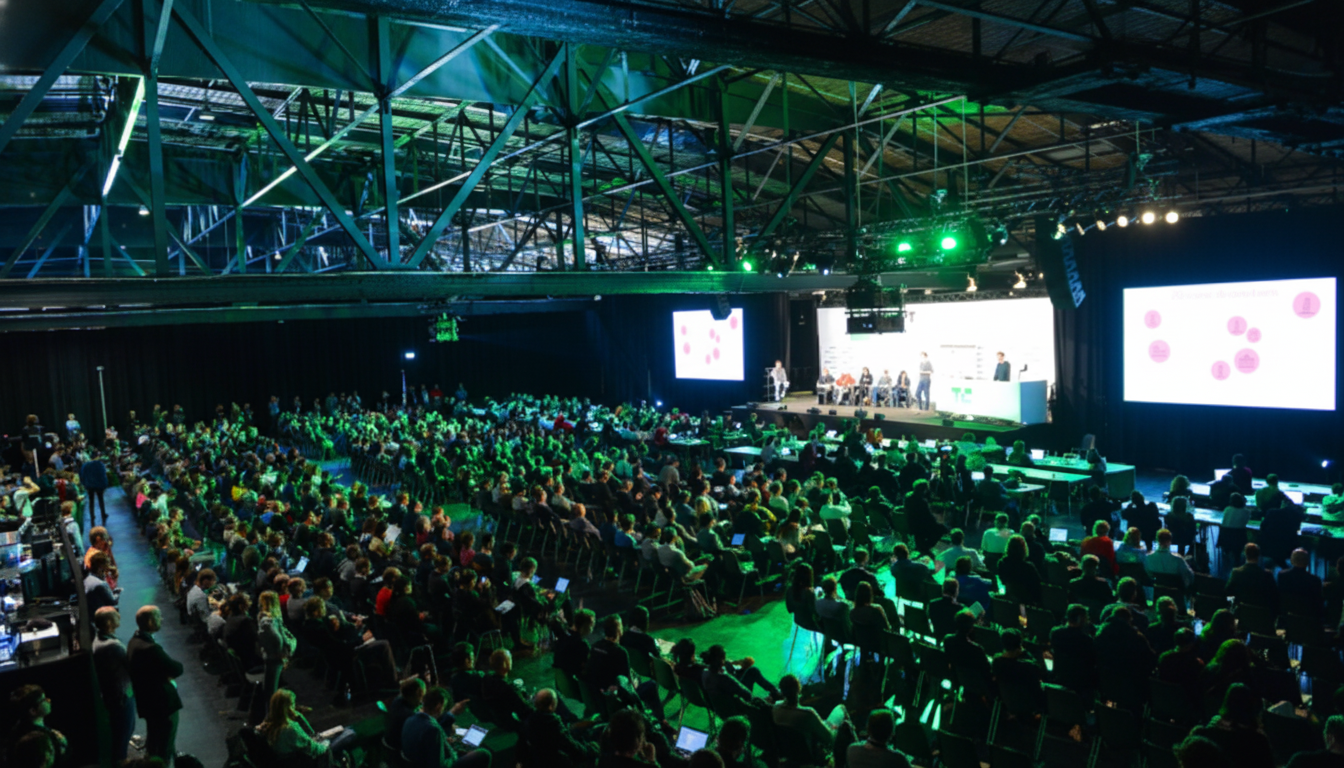There are only four days left before Disrupt 2025 kicks off in San Francisco, and organizers want to make sure you don’t miss your final chance to save on tickets before prices head skyward.
Over three days, the event is expected to bring more than 10,000 founders, investors and operators through the doors of Moscone West for a marathon schedule of content sessions, live demos and dealmaking that has become symbolic of the startup economy.

The price clock is in the red zone. Attendees can also still save up to $444 on standard passes or bring a guest and receive 60% off their pass, high-five with UpTEAM for up to 30% off group bundles. At the time that pre-event pricing ends, walk-up rates and late-tier timing typically kick in—an otherwise preventable blow to bootstrapped start-ups and emerging funds.
Last-minute pricing and discounts you can still grab
The current crop of offers are clearly designed for founders and operators who wanted to wait until they’ve seen how their week is taking shape. The 60% guest discount essentially transforms a pass into two seats at far less than the per-pass price, wisely enabling co-founders or sales leads who divvy up meetings. Group rates up to 30% off let product and go-to-market teams cover more ground on the floor and in breakouts.
For companies in the early stages, it’s simple math: One investor meeting or pilot agreement can pay back the pass price many times over. That calculus explains why at the eleventh hour, late buyers always storm in even as nearby hotel inventory constricts. If you were thinking of going, now’s the time to book because tickets climb in price and last-minute flights can be a total scramble.
What you’ll see onstage and in the expo hall this year
Topics this year cover five big stages — AI, Space, Builders, Going Public and the Disrupt Stage — and hands-on roundtables, Q&A breakout sessions for practical advice. The roster includes senior leaders from Google Cloud, Netflix, Microsoft and Box along with investors a16z and Khosla Ventures, technologists from ElevenLabs, Wayve and Hugging Face. Anticipate candid discussions with operators such as Microsoft CTO Kevin Scott and Netflix CTO Elizabeth Stone, policy insights from San Francisco leadership, and seasoned founders like Vinod Khosla and Elad Gil.
The Expo Hall will also feature 300 startups unveiling prototypes and AI-powered tools live on stage. The show floor, for buyers and partners, has become a proving ground for proofs of concept; for startup vendors, it’s an express lane to feedback and pipeline. Organizers are also anticipating more than 2,000 curated 1:1 and small-group networking sessions, providing solo founders and larger teams guided opportunities to meet investors, prospective customers and hiring candidates.
And the pitch competition is still an attraction for a certain breed of early-stage founder, eager for spotlights and investor attention. Even absent winning the top prize, finalists often come away with term sheet discussions and press attention that can materially alter a fund-raising timeline.

Why this year matters for founders, investors and teams
Founders are feeling their way through a market that values clear unit economics and real traction after two years of violent reset. Analyst reports released by PitchBook and NVCA in the past year have noted slower activity around late-stage megadeals, while seed and early stage rounds are still available to strong teams — particularly within AI, developer tools, climate tech or fintech infrastructure or robotics.
That mix should inform the conversations in San Francisco. The AI track promises to probe into model strategy, data pipelines and cost control, while the Builders track concentrates on shipping product under minimal funds. Going Public will address secondary options and the road to liquidity, which is timely given how founders and employees are dealing with option lifecycles. City officials are also on the program, so guests can likely expect conversation about innovation policy and safety as well as the region’s place in the world of deep tech and AI.
How to make the most of the trip and maximize meetings
Have a goal of 8–10 substantive meetings in place before you get to town. Preschedule roundtables and curated sessions for your sector on the event app, and carve out time on the Expo floor to visit companies tangentially related to your stack — many of the best partnerships emerge in adjacent lanes. Founders should come with a one-page overview and a clear ask, and tell your story in just two minutes; investors love precision.
For AI infrastructure and tooling startups, prioritize the AI and Builders stages and then schedule follow-up with enterprise buyers after their relevant sessions. Both climate and space founders need to be hitting the technical roundtables early, as pilots and grants are often talked about there more openly than on the main stage. And if you are fund-raising, keep tabs on which partner is running the Q&A. Those conversations tend to drive home how firms are actually deploying their capital this quarter.
The bottom line on price and why acting now saves most
And if you’ve already got your sights lined up on Disrupt 2025, then the cheapest thing you can do is buy a pass while it’s an absolute steal in the days when prices are at their lowest.
The savings from there can’t get sweeter at the door with up to $444 off the regular pricing, 60% off for guests and group rates as high as 30%. Featuring a who’s who of speakers, 300 exhibiting startups and hundreds-to-thousands of targeted networking meetings, the ROI case to be made for attending is strong — and even stronger if you can avoid waiting until the last-minute for tickets to swell in price.

